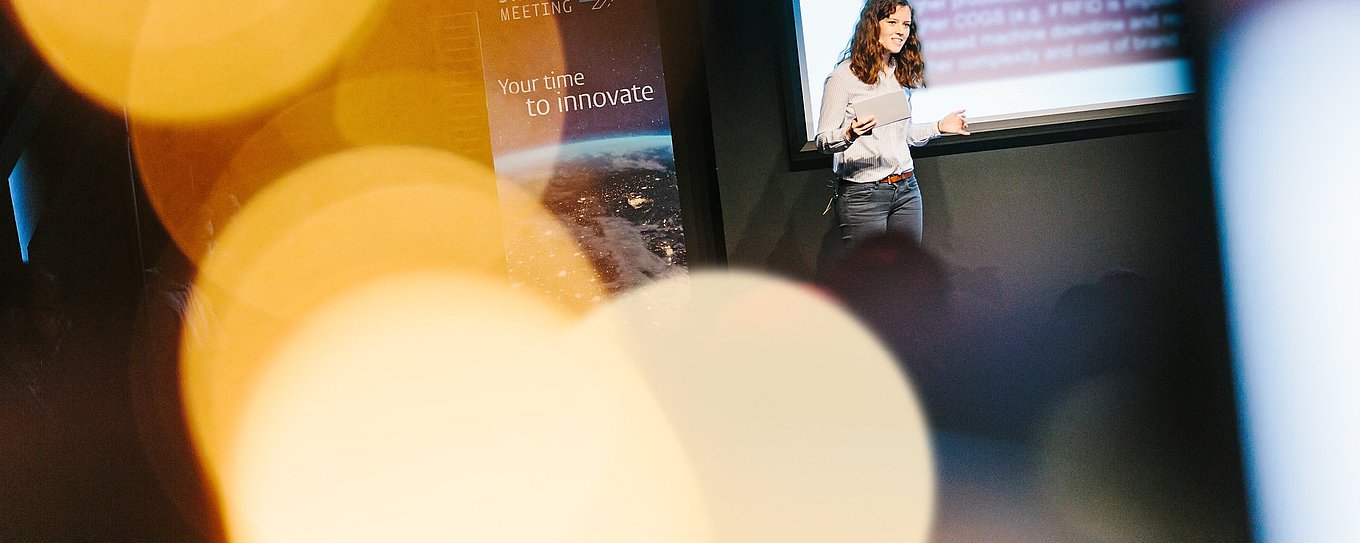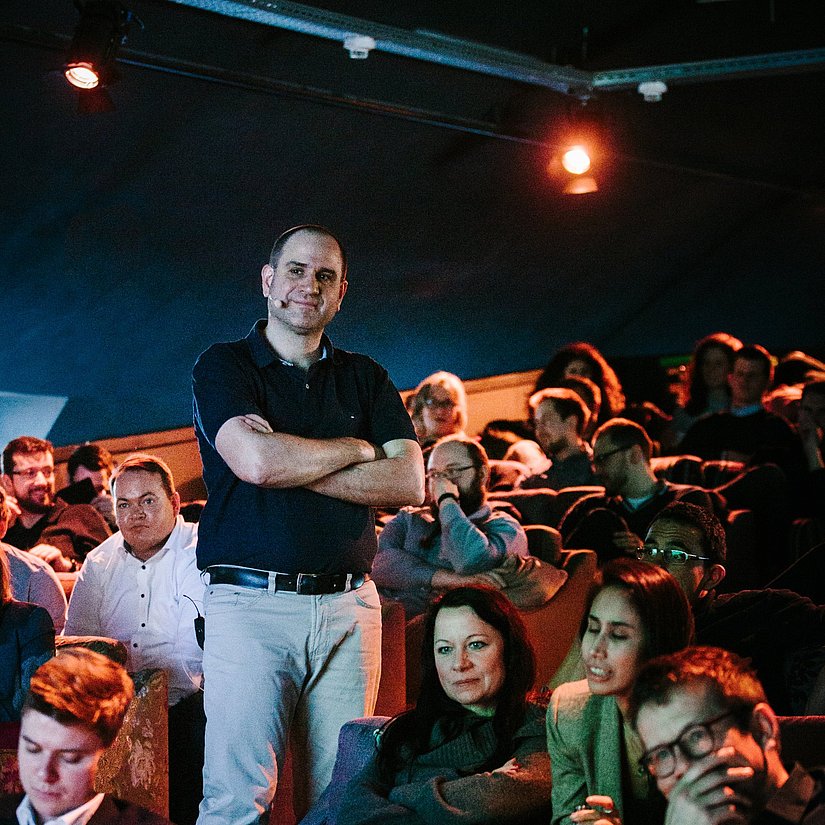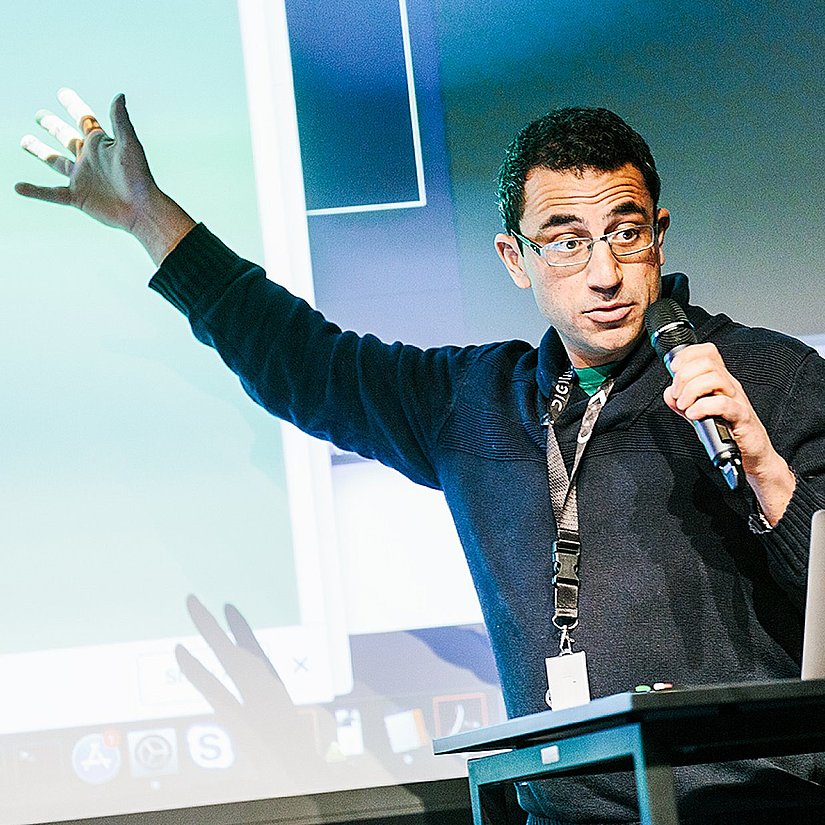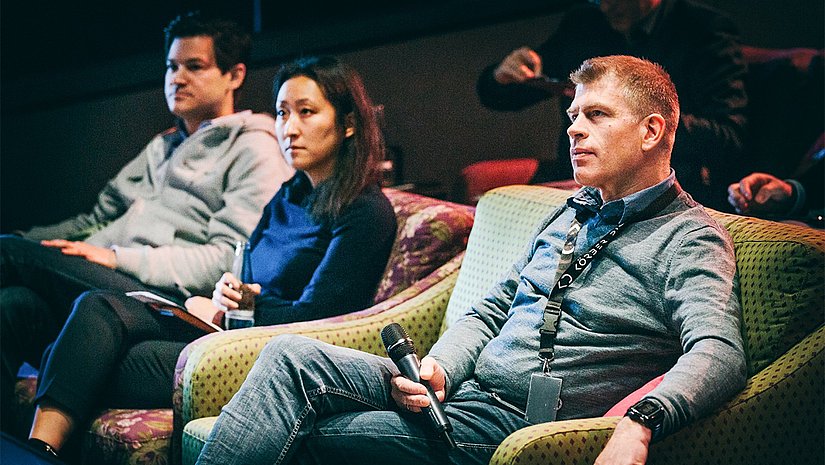"Don’t focus so much on your technology. Pay more attention to your customer’s problem.” “Next time I want to see more progress on the business model.” “Why is your solution better than the one I can already get on the market?” Comments like these, which make one think of the TV show “The Dragons’ Den,” are typical at a Körber event that is held monthly in the film theater on a start-up campus in Berlin. Here, highly motivated pioneering thinkers present their ideas on a brightly lit stage. The jury asks tough questions and reaches a judgment: Should the project continue or not?
But this is where the similarities with the TV show, which features would-be company founders, come to an end. At Körber’s Stage Gate Meetings, the tone is objective, the feedback is well-qualified, and the audience represents concentrated expertise. Other Körber locations are connected via livestream; anyone who has the time can watch. Some of the observers in the hall or in the network have participated in these projects, while others are curious or want to ask questions that will help the teams refine their ideas swiftly and with a focus on the customer. The presenters who pass will be permitted to move towards their next Stage Gate — that is, the next milestone in the innovation process at Körber Digital.






